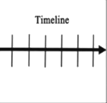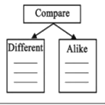题目内容
It was last January, when I’d just finished a charity(慈善) and was on the train back home, that I put down my phone and started writing thank-you notes to people who had helped.
When I got off the train, I felt amazingly good. The next day, I wrote more thank-yous and the same feeling of happiness hit me again. I suddenly had the idea: Why not keep on doing this for every day of the year?
To keep on task, I decided to pick out a different theme for each month. January was charity.
February would be neighbors, I decided. And I thought of a number of names right away: the owner of our local bookstore, who let me and my little son in before the store opened and offered to play his favorite songs; our babysitter, who dropped off a bag of old board games for our kids to play; …
While writing the notes, I realized how often I had spent my time on the phone moving from app to app, appreciating(欣赏) other people’s lives. Writing thank-you notes allowed me the time to do something different, paying more attention to my own life.
In the following months, I wrote to my friends, doctors, teachers and parenting role models. In July, my “food” month, I wrote to Julie, who used to cook at my favorite restaurant. It went like this:
Dear Julie,
I’ve been finding myself missing you lately. Thank you for hosting and cooking beautiful and thoughtful food. Jake and I will never forget when you sent out biscuits shaped into the number VI for our sixth anniversary (周年纪念日). We talk about it every year.
Thank you. We miss you.
Love,
Gina
I was happy to receive a note back from her. Julie replied, “I don’t think I’ve ever received such a touching letter before. I’m going through a hard time right now, and this helps.”
On December 31, I wrote my last card — to Jake, my husband, and our two kids. And I took a picture of us, so I could remember the feeling welling up inside me. Gratitude.
1.The underlined word “this” in Paragraph 2 means ________.
A.writing thank-you notes B.putting the phone away
C.taking the train back home D.raising money for charity
2.How did Julie most probably feel after reading the note from Gina?
A.Shy and surprised. B.Pleased and relaxed.
C.Nervous and excited. D.Moved and encouraged.
3.The theme of the December notes might be “________”.
A.photos B.family C.holidays D.community
4.What did Gina get by doing her task according to the passage?
A.Many thanks from her neighbors. B.More time to appreciate her own life.
C.More help from people around her. D.Happy moments to be with her friends.
5.The best title for the passage can be ________.
A.My Thank You Year B.An Amazing Trip
C.Happiness inside Us D.Important People in Our Life
在你校"劳动教育月"期间,校英语报发起了"A Helper at Home"主题征文活动。请结合自身情况,用英语写一篇短文投稿,谈谈你经常做的两项家务以及你的收获。内容要点提示如下:
What you often do at home | What you have learned |
◆ water flowers ◆ cook meals ◆ wash the dishes ◆ look after pets ◆take out the rubbish ◆…… | ◆life skills ◆ responsibility(责任) ◆…… |
注意:
(1)表格中的内容要点仅供选择使用,可适当发挥。
(2)文中不得出现与你身份相关的信息。
(3)词数:80~100。短文首句仅供参考,不计入总词数。
短文首句:I have always been a good helper at home.
________________________________________________________________________________________________________________________________________________________________________________________________________________________________________________________________________________________________________________________________________________________________________________________________________________________________________________________________________________________________________________________________________________________________________________________________________________






